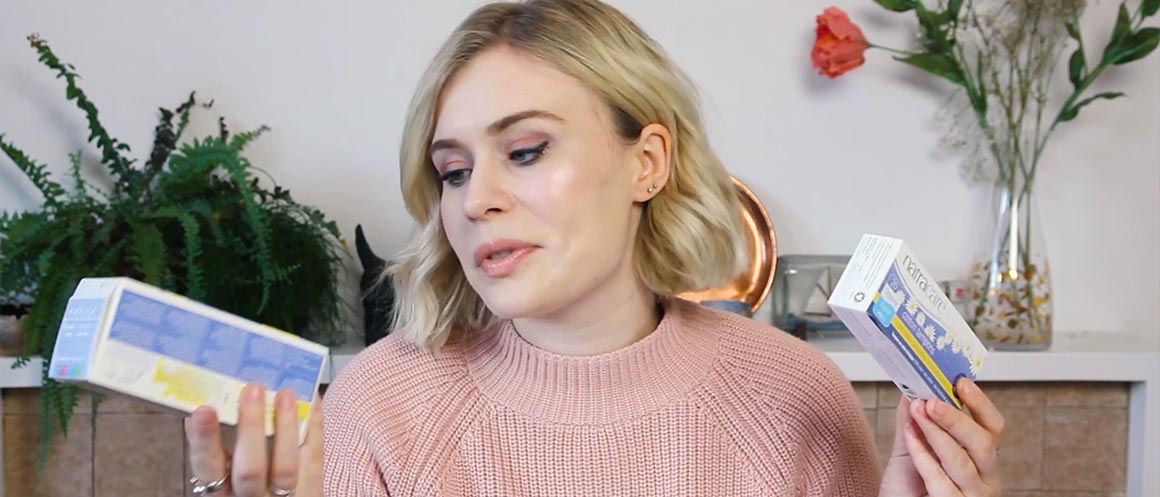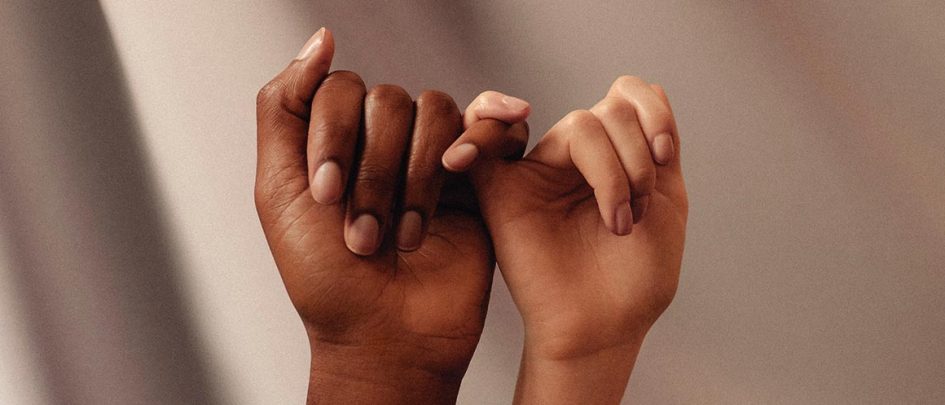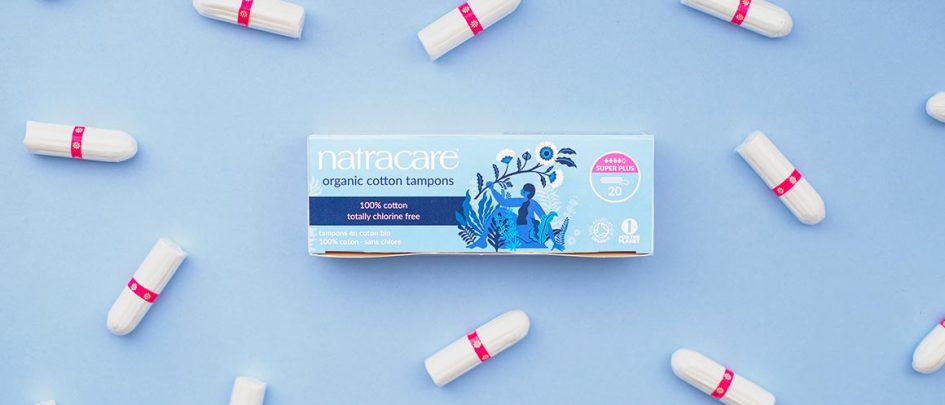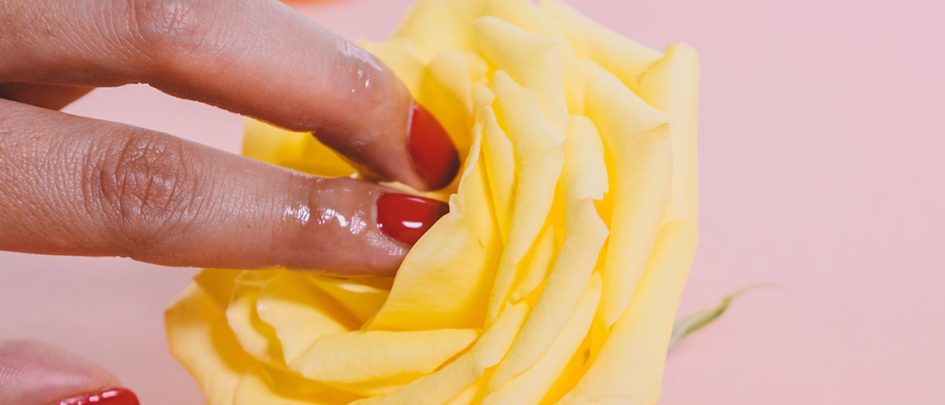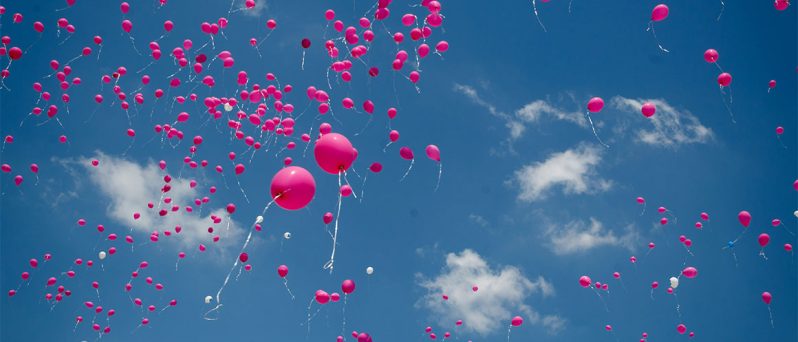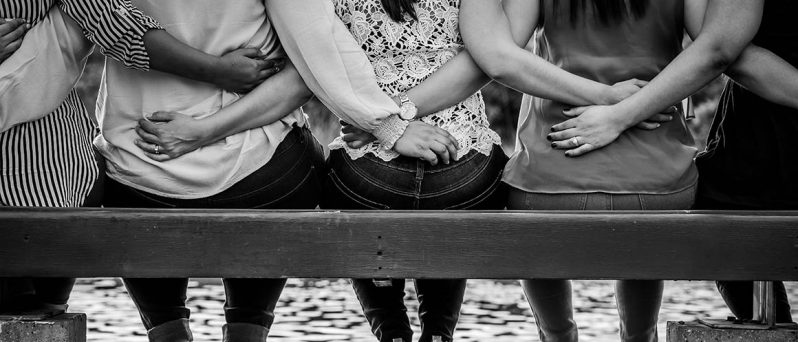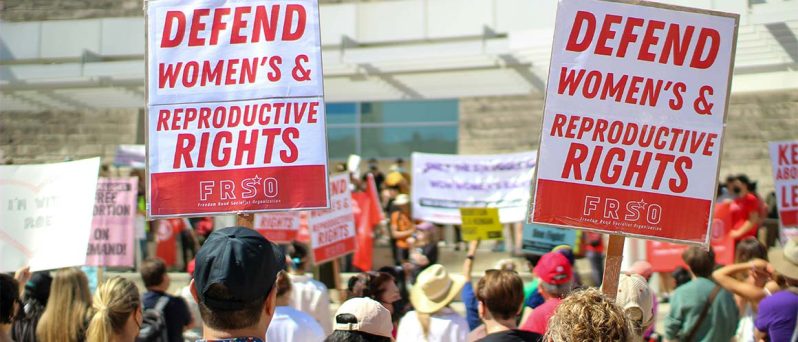We recently teamed up with Lex Croucher to raise awareness of conventional period products; that they’re filled with plastic, the damage they have on our bodies and our planet, and more shocking facts on period products.
So many people who have periods are unaware of the harm it has on the most sensitive area of your body, let alone the negative impact that flushing period products has on the environment.
It’s just one of the reasons why we exist as a brand. We are an all-natural, plastic-free, biodegradable period product company, that helps you leave a softer footprint on this earth.
If you want to find out more about our period products, why we exist, and why we’re still campaigning, watch Lex’s full video or read the transcript below.
Transcript
This video is sponsored by Natracare. But I’ll get back to them later because, first, we’re going to talk about periods.
I’ve talked about my period quite a lot on this channel. Periods, cervixes, discharge – we’re breaking all the taboos, we’re making our parents uncomfortable, and we’re fighting through our own discomfort to try to normalise things for the next generation. Progress!
I’m trying to talk more about ethics, sustainability and the environment on my channel, and unfortunately periods and the environment haven’t always been the best of friends.
There’s been a lot of talk about single-use plastics lately – people are doing things like using reusable bottles and coffee cups, saying no to plastic straws unless you need them for accessibility reasons, and generally just trying to reduce the amount of unnecessary packaging we buy.
But if you’re a person who gets periods, have you thought about the ethics of your period products? Do you know if your period products are contaminated with toxic chemicals, or are adding tons of plastic into the world?
I’ve honestly been pushing this to the back of my mind as I’ve tried using menstrual cups and failed. They’re definitely a good option and if they work for you that’s amazing, but I haven’t been able to get on board with them after many months of trying. I basically assumed that I had no alternative and that traditional period products were just a necessary part of life. But the actual statistics now I’m forced to confront them are pretty shocking.
1.4 million pads get flushed down the loo every day, and the average pack of pads contains as much plastic as four carrier bags. 2.5 million tampons are flushed too, and most of them also contain plastic.
Try plastic free
Period Products
Discover Now
Lots of people don’t know that you’re not supposed to flush period products down the toilet. I didn’t know until my early twenties, and I started my period when I was 12. I dread to think how many tampons I flushed before I found out. Our teachers actually encouraged us to flush them, which I’m horrified by now.
Even if you’re NOT flushing your period products, they end up in landfill, where the average sanitary pad will take around 500 years to break down. And landfill doesn’t stay in landfill – it often ends up in the sea as it is blown away into rivers and other waterways.
The average period-having person will dispose of 11,000 menstrual products in their lifetime. And that adds up to a lot of plastic.
So we have to think about what we’re putting into the world – but we also need to ask what we’re putting in ourselves.
Conventional (or non-organic) tampons are often made of rayon fibres that can shed and end up remaining inside your vagina, which obviously isn’t ideal due to hygiene and bacteria issues. Organic tampons are made from organic cotton only, so you don’t get the same amount of fibre loss.
These environmentally damaging products are also usually full of toxic dioxins from chlorine bleaching – these are actual toxins that are linked to things like cancer and reproductive harm, not made-up toxins that Gwyneth Paltrow probably thinks you can get rid of by shoving a jade egg up yourself. And they can also be full of toxic pesticides from non-organic cotton, and fragrances with lots of delightful chemicals that aren’t disclosed to you when you’re buying them.
Your vagina can’t break down toxins. It’s not like your liver, it’s got other jobs to do. And now that I know all this stuff, I can’t un-know it. And neither can you! Congratulations, enjoy the horrible gift of knowledge.
So what are we supposed to do about this? As I mentioned, you can try menstrual cups. There are also reusable cloth pads that you wash like reusable nappies, if that’s your thing. But there are also brands like Natracare.
Obviously this video is sponsored, but I want you to know that this is a change I will actually be making in my life from this point onwards, and I don’t want you to think that I’m only saying that because I’m working with a brand. It’s legit.
Natracare are a plastic-free period brand who’ve been campaigning against plastic and chemicals in period products since the 80s. I wasn’t even born then! They’ve developed products which are 100% organic, recyclable and biodegradable. They have no fibre loss issues, they are chlorine free, vegan and not tested on animals. They’re basically the answer to all of my vagina’s prayers, although I’m not sure if my vagina believes in a god. Currently unverified.
And if you don’t like tampons, they also do pads and liners.
I’m going to link to them in the description so you can switch up your period products if you care about the issues I’ve talked about in this video, but also link you to a petition to make ALL period products plastic-free, because we need all manufacturers to step up and make this change for the environment.
Thanks for watching another video about my vagina, bye!
